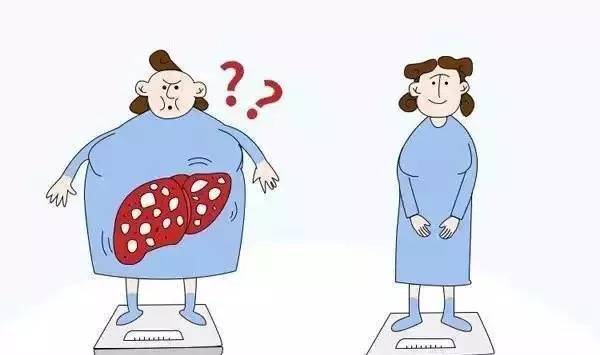With the development of the times, the progress of society, the continuous improvement of people's living standards, and the change of disease types, diseases caused by "too much eating" have become commonplace. For example, high blood fat, high blood pressure, high blood sugar and so on are all related to long-term unhealthy diet. In life, everyone thinks that people with a good appetite are healthy. But many times, a sudden appetite does not bode well.

"Too much to eat" is not a good habit. On the contrary, in a relatively short period of time, the amount of food eaten has increased significantly. This may not only be due to poor digestion, but also may be a symptom or signal of some diseases. If your appetite increases in a short time, you may suffer from the following diseases:
1、Diabetes
The most typical disease causing increased appetite is diabetes. When you have diabetes, you will have more than three symptoms. It's more drinks, more food, more urine, but its weight is decreasing. If you have a particularly good appetite recently, but your weight has been falling, and you are thirsty, you need to be alert to diabetes.
2、Hyperthyroidism
Hyperthyroidism patients have excessive secretion of thyroid hormones, which can promote metabolism and make the body hypermetabolism. It shows that the gastrointestinal activity in the body is enhanced, the redox reaction is enhanced, the energy consumption of the body is increased, and the body is always hungry, so the appetite of hyperthyroidism patients will greatly increase and the amount of food they eat will increase. At the same time, there will be emaciation, fatigue, fear of heat, easy sweating and exophthalmos.
3、Hypercortisolism
The patient has hyperappetence after illness, and at the same time, he has abnormal obesity, facial obesity, chest and abdomen fat accumulation, but his limbs are not fat, sometimes they are thin, which is in sharp contrast to the obese trunk, so it is also called "centripetal obesity", which is a symptom of endocrine disorder. Patients should have a light diet, do more vigorous aerobic exercises such as Taijiquan, walking and swimming, and maintain a regular work and rest.

4、Gastrinoma
Gastrinoma is a rare gastrointestinal pancreatic neuroendocrine tumor. It may be due to the active growth of tumor cells in the early stage, which can stimulate the secretion of gastric hormones and gastric acid to increase, thus causing the improvement of appetite.
5、Bulimia nervosa
Bulimia nervosa often occurs in people under 20 years old or patients with anorexia nervosa in the early stage, often showing impulsive bulimia and lack of satiety. At the onset of the disease, the appetite increases greatly, and people can eat many times more food than usual. After overeating, they will take various methods to compensate, including catharsis, inducing vomiting, using weight-loss drugs or diuretics, and fasting and dieting.
6、Parasitic infection
If you don't pay attention to hygiene at ordinary times and are infected with intestinal parasites, such as hookworm and tapeworm, it will also lead to abnormal digestive system function, which will lead to increased appetite. Because parasites also need to consume food in their bodies, when they eat your food, they will increase the hunger of the body and increase people's appetite.
7、Duodenal ulcer
Patients often feel stomach pain 3-4 hours after eating or when they are hungry, but after taking a small amount of food, the pain can be alleviated, which is manifested as increased appetite and eating.

It is easy for people to overeat when their appetite is greatly increased, but everything is opposite when things are extreme. What diseases can be induced by overeating for a long time? The following five diseases cannot be ignored!
The first is obesity. The most obvious manifestation of excessive food intake over a long period of time is obesity. Excessive body fat will cause excessive weight growth and cause pathological and physiological changes or latent changes of the human body, which is harmful to health and unsightly in appearance.

The second is dyspepsia syndrome. Long term overeating will lead to excessive burden on the digestive system, decreased digestive function of the gastrointestinal tract, indigestion, and even gastric cancer in serious cases.
Then there is hypertension, hyperlipidemia and hyperglycemia. Excessive food intake will be converted into a large amount of fat in the body, excessive accumulation of triglycerides and a large increase of low-density lipoprotein in the blood will easily cause hypertension, fatty liver and diabetes.

Then pancreatitis. Long term overeating will lead to strong secretion of pancreatic juice, and poor drainage of pancreatic duct will increase the pressure of pancreatic juice in the pancreaticobiliary system, resulting in high concentration of protease excretion obstacles, and finally lead to rupture of pancreatic bubble and morbidity, thus causing bleeding and necrosis of pancreatic tissue.
Finally, it will harm the brain. Modern medical research has proved that long-term satiety is easy to cause memory decline, mental retardation and inattention. Relevant experts in Japan have also found that about 30-40% of patients with Alzheimer's have the habit of long-term satiety in their young and middle-aged years.

At ordinary times, we should pay attention to healthy eating and don't overeat. We hope you can take care of your body from the details of life and spend a comfortable day.
Popular Articles
-
The world's most mysterious island: Easter Island stands thousands of giant stone statues

-
 Pick a chopping board that suits your needs, so you can cook with ease
Pick a chopping board that suits your needs, so you can cook with easeMay 09, 2025
-
 Fish Glue Soup for Invigorating Qi and Blood
Fish Glue Soup for Invigorating Qi and BloodMay 09, 2025
-
 Improve metabolism to get rid of "fat physique"!
Improve metabolism to get rid of "fat physique"!May 09, 2025
-

Photos
The world's most beautiful big cities at nightMay 09, 2025
-
 Very family-friendly Japanese home furnishings. With them, we can easily improve our happiness at home.
Very family-friendly Japanese home furnishings. With them, we can easily improve our happiness at home.May 09, 2025







Comments
0